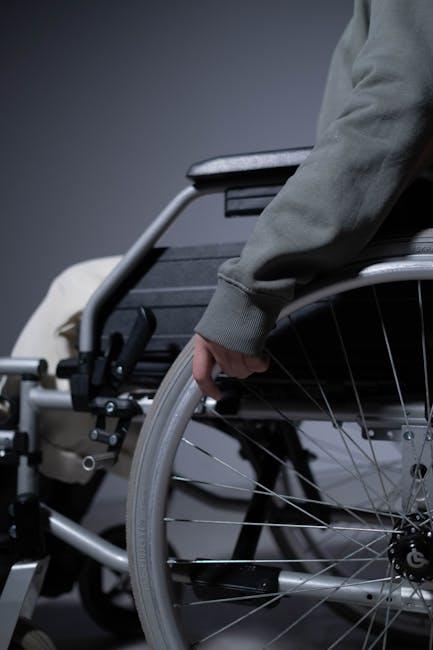In an era where convenience is often prioritized over self-sufficiency, the rise of personal assistants has emerged as a double-edged sword for modern families. While these professionals offer invaluable support in managing the complexities of daily life, their increasing prevalence raises critical questions about the long-term implications of reliance on external help. This article delves into the phenomenon of personal assistants, exploring how their integration into family life may inadvertently foster a culture of dependency. By examining the subtle yet profound shifts in family dynamics, decision-making, and self-reliance, we aim to uncover the hidden costs of this modern convenience. Through a careful analysis of the benefits and drawbacks, we invite readers to reconsider the role of personal assistants in shaping the future of family life.
Impact on Family Dynamics and Self-Reliance
As personal assistants become increasingly integrated into family life, the traditional dynamics within households are subtly shifting. The reliance on external support for everyday tasks can lead to a reduction in the intrinsic self-reliance that once characterized family units. Family roles that were once clear-cut and well-defined are now often blurred, as the responsibilities of organizing schedules, managing household chores, and even making family decisions are outsourced. This shift can inadvertently lead to a decrease in the development of essential life skills among family members, particularly younger ones who may miss out on learning valuable lessons in responsibility and time management.
- Dependency on Technology: Families may find themselves increasingly dependent on technology for tasks that once required human interaction and problem-solving skills.
- Loss of Communication: With personal assistants taking over many organizational roles, there may be fewer opportunities for family members to engage in meaningful discussions about daily logistics.
- Reduced Sense of Accomplishment: Completing household tasks independently can foster a sense of achievement, which may be diminished when such tasks are routinely delegated.
Ultimately, while personal assistants can undoubtedly ease daily pressures, it’s crucial for families to strike a balance between utilizing these technologies and maintaining the core values of self-reliance and strong interpersonal relationships.

Evaluating the Balance Between Convenience and Independence
In today’s fast-paced world, personal assistants have become invaluable for many families, offering a myriad of services that can range from managing schedules to handling household tasks. However, this ease of access to external help can inadvertently lead to a dependency that might undermine a family’s ability to function independently. Families may find themselves relying heavily on these services, potentially eroding essential life skills and self-reliance.
Consider the following aspects when weighing the benefits and drawbacks of utilizing personal assistants:
- Skill Development: Routine tasks, when outsourced, may prevent family members from developing essential skills, such as budgeting, time management, and problem-solving.
- Family Dynamics: Delegating responsibilities to an outsider can alter the balance of duties within the household, possibly leading to a decrease in collaborative efforts and shared experiences among family members.
- Cost Implications: The financial commitment of hiring a personal assistant can be substantial, potentially affecting long-term savings or investments.
While the convenience offered by personal assistants is undeniable, striking a balance between utilizing these services and maintaining independence is crucial for fostering a resilient and self-sufficient family unit.

Strategies for Reducing Over-Reliance on Personal Assistants
- Establish Clear Boundaries: Setting boundaries is crucial in ensuring that personal assistants do not become the primary decision-makers in family matters. By clearly defining roles and responsibilities, families can maintain control over essential activities and make sure personal assistants are utilized as support rather than leaders.
- Encourage Skill Development: Promoting self-reliance within the family by encouraging members to develop necessary life skills can significantly reduce dependency. This can be achieved by involving family members in routine tasks such as cooking, budgeting, and scheduling, which are often delegated to personal assistants.
- Implement Technology Solutions: Leveraging technology can help families manage tasks independently. Tools such as calendar apps, budgeting software, and task management platforms can streamline daily activities, making it easier for family members to handle responsibilities without outside help.
- Schedule Regular Family Meetings: Holding regular family meetings can ensure open communication and collaborative decision-making. This practice helps to align family goals and ensures that all members have a voice in the planning and execution of daily and long-term activities, reducing reliance on external input.
- Promote Collaborative Problem-Solving: Encourage family members to work together to solve problems and make decisions. This not only builds teamwork and strengthens family bonds but also reduces the need for external assistance by developing collective problem-solving skills.
Empowering Families to Cultivate In-House Skills
In today’s fast-paced world, families often rely on personal assistants and external services to manage household tasks, inadvertently diminishing the development of essential in-house skills. By cultivating these skills within the family unit, individuals can foster a sense of independence and competence that enriches daily life. Encouraging family members to engage in these activities not only enhances self-sufficiency but also strengthens familial bonds through shared responsibilities and accomplishments.
- Cooking and Meal Planning: Involve family members in meal preparation to teach essential cooking techniques and nutrition awareness.
- Home Maintenance: Regularly assign small repair tasks to develop practical skills and confidence in handling home-related issues.
- Financial Management: Encourage participation in budgeting and financial planning to promote financial literacy and responsibility.
- Gardening and Sustainability: Introduce sustainable practices by cultivating a home garden, teaching patience and the rewards of nurturing growth.
By investing time and effort in these areas, families can break the cycle of dependency on external services, paving the way for a more empowered and self-reliant household. Embracing this approach not only benefits the individual members but also enriches the family’s collective strength and resilience.



